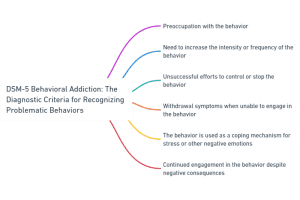Social media is a lifeline for many teens, offering entertainment, connection, and community. But for youth like Rebecca Kui, the cost of endless scrolling often outweighs the benefits. As stories like theirs come to light, Singapore is considering following Australia’s lead to restrict social media access for young users, raising questions about whether regulation is the key to solving this digital dilemma.
“It’s kinda scary because you begin to neglect your other priorities, and minutes can turn into hours very quickly,” says 16-year-old Rebecca Kui, in an interview with today.
Her words echo the sentiments of many teens in Singapore, caught in the grip of social media platforms designed to keep users engaged for as long as possible.
Rebecca spends hours scrolling through Instagram’s infinite feed, where carefully curated posts vie for her attention. For her, like so many others, the line between entertainment and addiction is thin.
This reality is why Singapore is re-evaluating its relationship with social media. Inspired by Australia’s bold move to ban children under 16 from accessing platforms, local policymakers are asking if stricter regulation could protect young users from the harm these digital spaces can cause.
Hooked on Social Media in Singapore
Social media addiction is a growing concern among Singapore’s college students, with 29.5% meeting the criteria for addiction, according to a study published in the Asian Journal of Psychiatry.
The research also revealed that social media addiction frequently overlaps with other behavioural issues.
@livingwith.adhd My social media addition is ruining my life, but how do i break the addiction? #socialmediaaddiction #socialmedia #livingalone #livingaloneinmy20s #livingalonediaries #dopaminediscipline #adhdaddiction #adhdinwomen ♬ original sound – Beth | ADHD 🧠
This creator shares how excessive screen time has impacted their life negatively, leading to broader personal and social challenges.
Among those surveyed, 3% reported both social media and unhealthy food addiction, while 5% experienced both social media and shopping addiction.
Female students were particularly affected, with higher rates of both addiction and comorbid mental health issues compared to their male peers.
The Real-Life Costs of Social Media Addiction
For many young people, social media addiction disrupts far more than their schedules. The mental health toll can be severe. 27.% of students with social media addiction experience anxiety, and 21% suffer from depression.
These issues often surface alongside difficulties in academic performance and social interactions, creating a ripple effect that affects every aspect of life.
Seventeen-year-old Josiah, a polytechnic student, spent up to seven hours a day on gaming and social media platforms like YouTube and Discord. His mother recounted to today how his dependence disrupted family life, with Josiah refusing to step away from his phone, even during meals, and isolating himself for hours.
At the peak of his addiction, attempts by his parents to intervene led to conflict. Over time, his excessive screen time began to affect his focus in school and his willingness to engage in offline activities.
With encouragement from his family, Josiah eventually joined a youth therapy programme that used group activities and sports to help participants rebuild healthier habits.
His mother noted that the programme helped Josiah reduce his screen time and regain some balance in his life.
Social Media Dependency Meets the Criteria for Addiction
Traditionally associated with substances like alcohol or drugs, addiction is increasingly being recognised as a behavioural issue too.

While social media addiction is not formally classified as a disorder, it meets many criteria in the DSM-5.
These include preoccupation with the behaviour, experiencing withdrawal symptoms when unable to engage, and using the activity to cope with stress or negative emotions.
This classification shifts the conversation from viewing social media overuse as simple indulgence to recognising its potential impact on mental health.
Identifying social media addiction as a behavioural issue allows for more specific interventions and treatments, similar to the approach taken with other behavioural addictions such as gambling.
When Social Media Addiction Becomes a Health Crisis
Social media addiction presents significant risks to mental and physical health, particularly among young people.
Dr Adrian Loh, a Senior Consultant Psychiatrist at Promises Healthcare, stressed to today the growing concern over its impact on youth. “Addictive behaviours at a young age are definitely a concern,”
He added that social media’s relative novelty makes it challenging to predict its long-term effects. “For social media, it has been around for barely past a decade, so we are still trying to understand downstream implications.”
Experts warn that the long-term impact of social media addiction extends beyond individuals to society at large. Mr Narasimman Tivasiha Mani, executive director of youth organisation Impart, highlighted these broader implications.“If left unaddressed, these issues could become more prevalent and severe among the current generation of youths as they grow older.”
He added: “An entire generation struggling with mental health and well-being could place a significant burden on healthcare systems and society as a whole, affecting productivity and overall quality of life.”
Life After Quitting Social Media
For many, stepping away from social media is an act of reclaiming time and mental space.
One Reddit user, u/poiu91, in their 20s shared that leaving social media helped them identify who truly cared about their life.
Comment
by from discussion
inaskSingapore
The absence of social media forced them to focus on meaningful connections, breaking free from the constant comparison that often accompanies platforms like Instagram.
Leaving social media isn’t without its challenges. A 17-year-old explained how their peers questioned if they had been blocked when they returned briefly after a three-year hiatus.
“Social media is toxic as hell anyway. Why would I wanna go back?” they concluded.
Others noted that social media became a cycle of doom-scrolling and negativity, making it harder to find motivation or joy in offline life.
Taking Action Against Social Media’s Grip on Youth
As social media dependency continues to pose risks to mental health and development, Singapore is taking proactive steps to address the issue.
@techkitchen Reply to @inezmp here’s how to activate app time limits ☺️ Hope that helps ! 👌 #iphonetipsandtricks #iphone #techtok #learnontiktok ♬ Monkeys Spinning Monkeys – Kevin MacLeod & Kevin The Monkey
Beyond policymaking: Tools like screen time limits can empower individuals to take control of social media use.
Inspired by Australia’s bold move to ban social media access for children under 16, local policymakers have raised whether similar measures could work here.
Minister of State for Digital Development and Information, Ms Rahayu Mahzam, stated in Parliament that the government is studying the effectiveness of legislating age limits.
“We share the same objective [as Australia] and will continue to study the effectiveness of mandating age limits,” she said. She acknowledged challenges in enforcement and the risk of driving youths to unregulated platforms, emphasising the need for a balanced approach.
Authorities are currently assessing these reports to ensure platforms are held accountable for harmful content and behaviours.
The question remains whether Singapore will follow Australia’s example, but the growing consensus is clear: social media addiction is a public health issue that demands urgent attention and action.
If you or a loved one is struggling with social media addiction, experiencing distress, or facing negative impacts on mental health and well-being, help is available.
Reach out to support services like the Samaritans of Singapore (24-hour helpline: 1-767) or the National Addiction Management Services (helpline: 6732 6837) for guidance and assistance.

